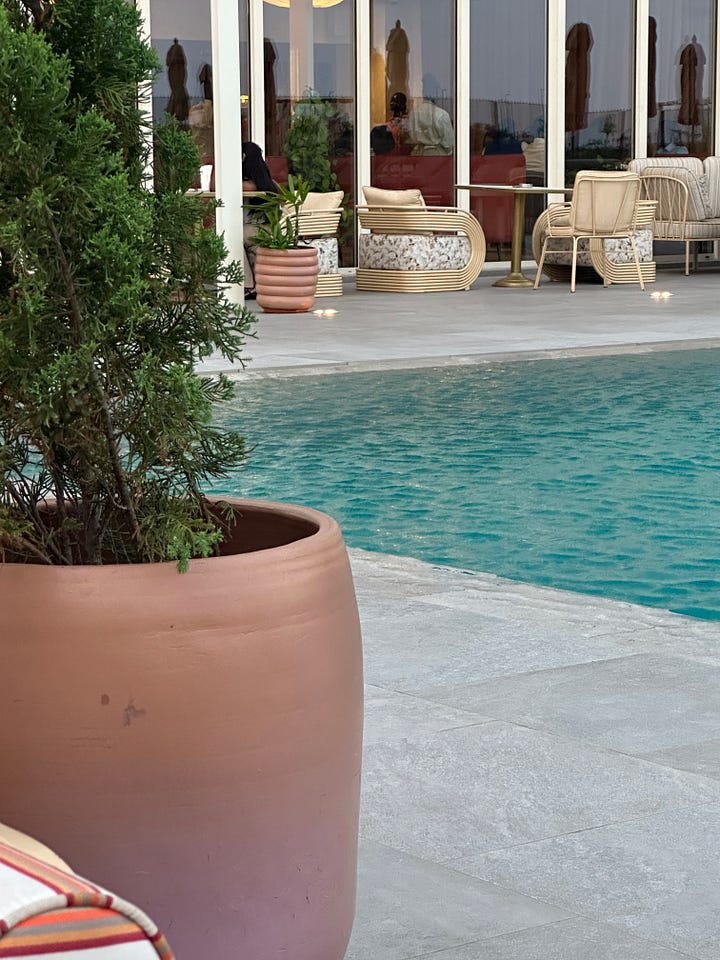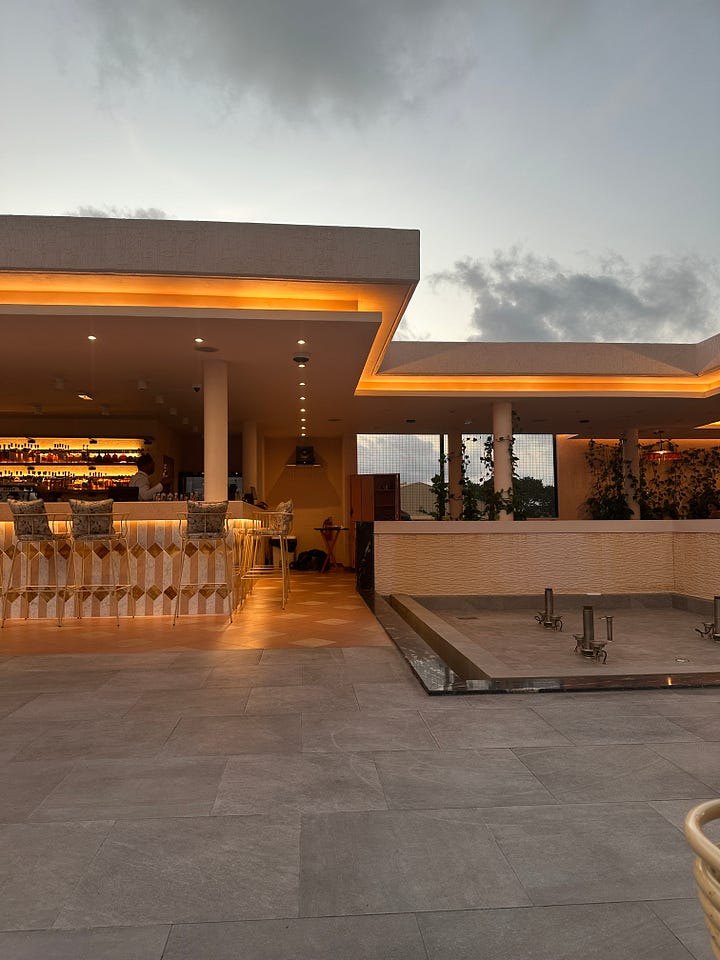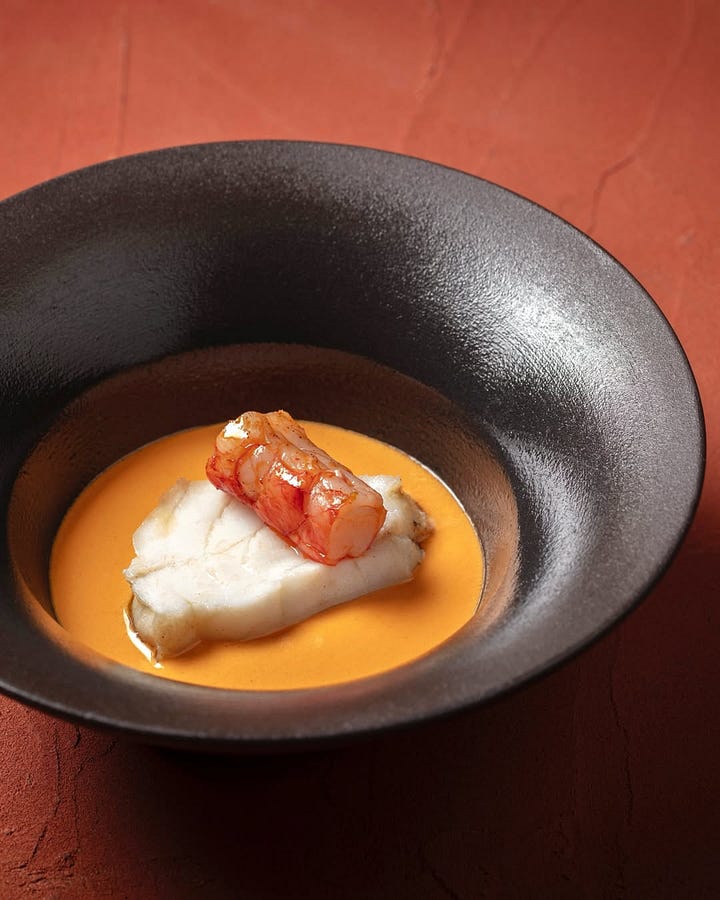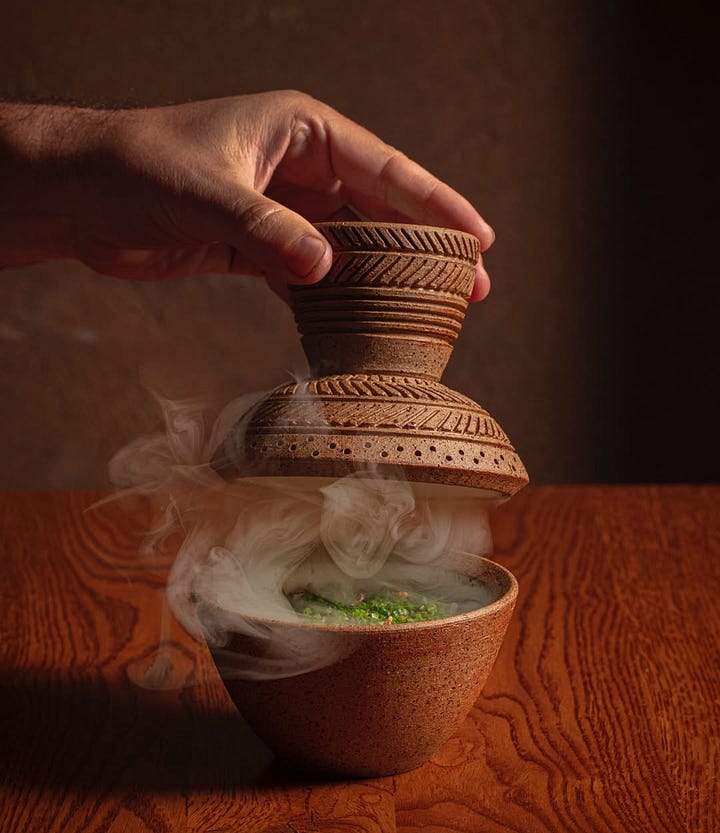Nigeria’s Culinary Scene.
In my free time in Lagos, I've been exploring restaurants and here's my takeaway.
A friend tells me about a new restaurant in Lagos. They’re excited - it’s “so good,” they say. I smile, hopeful. I go. And more often than not, I find myself looking at a menu that feels familiar: rice, wings, a bit of pasta, maybe a sushi roll with a local twist.
It’s not that the food is bad. It rarely is. But it’s also rarely inspiring. After visiting more than a dozen restaurants in recent months, I’ve come to a quiet, somewhat reluctant realisation: Nigeria’s culinary culture, at least in its urban restaurant spaces, has hit a creative plateau.
A Culture of familiarity
When it comes to restaurant innovation, we often default to comfort. Dishes are designed to meet expectation, not to surprise. The spice level is predictable. The plating, unchallenging. The experience, safe.
It seems our palate has grown more protective than adventurous. We know what we like, and we like what we know. As a result, many chefs build menus around guaranteed hits, not around possibility. The result is a dining culture that revolves more around satisfaction than exploration.


Aesthetics Are Evolving, the Menus Less So
To be fair, the restaurant experience in Nigeria is evolving. Spaces like Vici, Boca, and others are elevating the visual and spatial language of dining through sleek interiors, curated playlists, thoughtful ambiance. Lagos is beginning to mirror the global standard in hospitality aesthetics. But the menus? They often don’t keep up.
This gap between visual refinement and culinary innovation is still glaring. The setting promises an experience but what arrives on the plate doesn't fully translate.
The Proof That Our Cuisine Can Travel
This isn’t a reflection of our ingredients or our culinary heritage. It’s a matter of opportunity and context. Abroad, Nigerian cuisine is being reimagined and celebrated. Akoko and Chishuru, both in London, are introducing Nigerian flavours to Michelin-star audiences, pushing our culinary identity into new terrain without losing its soul.
What that tells me is this: the potential is already here. The ingredients are enough. The flavours are powerful. Nigerian food, when allowed to evolve, doesn’t just hold its own on the world stage - it sells.


The System Isn’t Built for Experimentation, but That’s Not the End of the Story
It would be easy to stop here and say, “Well, the system isn’t built for creativity,” and close the conversation. Yes, there are very real obstacles: sourcing inconsistencies, high spoilage, limited investor confidence, and a market that often chooses quantity over nuance.
But perhaps part of evolving the culinary scene is finding ways to create within those constraints—not waiting for the perfect supply chain or Michelin infrastructure to appear.
One such pathway is farm-to-table dining; a model that champions seasonality, traceability, and local connection. It doesn’t require imported truffles or aged cheeses. It requires relationships with farmers, a curiosity about what grows nearby, and a chef’s willingness to let nature inspire the menu.
Could we explore seasonal tasting menus based on what’s actually available and fresh? Could chefs spend more time sourcing from Nigerian growers and using limitations as fuel for innovation? Could we build stronger chef-farmer networks to ensure reliability over time?
Beyond that: chef residencies, pop-up kitchens, rotating menus, experimental food labs are all small shifts that can unlock big change. Platforms already doing this should be amplified. And investors, even at a micro level, should see food not just as consumption, but as culture worth building.
Creativity doesn’t need perfect conditions, it needs intention, support, and a mindset shift.
Could Our Palate Evolve? Yes, If We Decide It Should
This isn’t about abandoning the classics. Our native dishes hold stories, legacies, and power. But there is space for more. We can hold on to our favourites while also cultivating curiosity.
Palates evolve through exposure, through travel, through storytelling, through simply being open. If more of us begin to associate value with subtlety, balance, freshness, and intentionality, rather than just quantity or spice, we make room for a broader culinary experience.
Could food media shift their spotlight toward chefs who are innovating? Could diners reward experimentation instead of punishing it? Could restaurants take small risks with one dish on the menu and gradually stretch the imagination of the people they serve?
It begins with asking more from our meals, and being willing to receive something different in return.
A Closing Thought
Nigeria is a country of culture and reinvention. We’ve watched our music evolve. Our fashion is fearless. It’s time for our food to follow.
The palate can grow, but only if we feed it something new.


